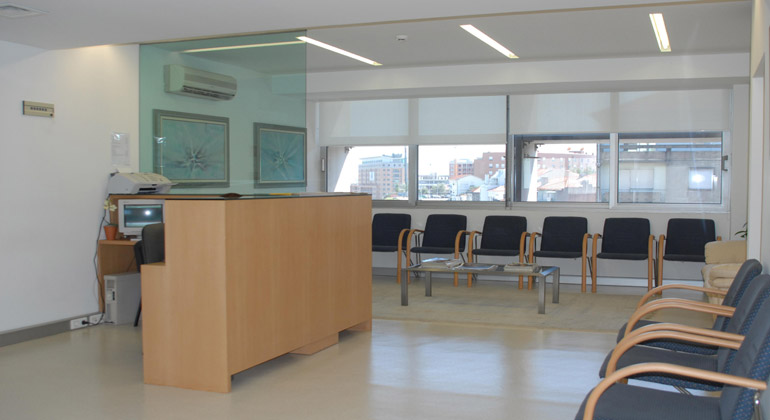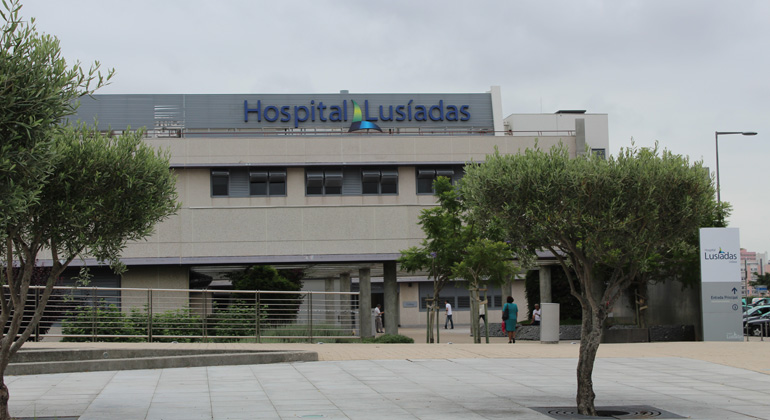ASSISTED REPRODUCTIVE TECHNOLOGY
Also known as reproductive technology, this is the medical specialty dedicated to use technology to achieve pregnancy when a couple isn’t able to conceive naturally. The definition of infertility is, according to the World Health Organisation (WHO), the absence of pregnancy after a full year of unprotected sex.

Infertility
Infertility is a condition that affects about 9 to 10% of couples nowadays and the numbers continue to rise. The study and treatment of this condition is made by gynecologists. The collaboration of other colleagues from biology, endocrinology, andrology, genetics, psychology, etc. is in some cases required.
For couples whose wish is to become parents and can't conceive naturally, there are several infertility treatments that can make those wishes come true.
Medical Port has teamed up with CETI and Hospital Lusíadas Lisboa, both with teams of physicians, embryologists and nurses with proven experience in the field of infertility in order for you to have access to the best options.
Performed treatments
In order to help a couple achieve pregnancy several exams and treatments can be performed from diagnosis, infertility tests, full couples’ studies, medical-surgical therapies and assisted reproductive technology (ART).
Infertility exams:
- Hormonal analysis
- Spermiogram
- Hysterosalpingosonography
- Hysteroscopy
- Laparoscopy
- Ultrasound
- Ovulation monitoring
Infertility treatments:
- Intrauterine insemination (IUI)
- In Vitro fertilization
- Intracytoplasmic sperm injection (ICSI)
- Surgical sperm retrieval for ICSI
- Frozen Embryo Transfer
- Infertility surgery
- Minimally invasive surgery: Hysteroscopy and Laparoscopy, in particular polycystic ovaries, fibroids and endometriosis
- Induction and stimulation of ovulation with ultrasonography monitoring for spontaneous fertilization
- Assisted Hatching
- Testicular sperm aspiration (TESA)
- Testicular sperm extraction (TESE)
- Blastocyst Embryo Transfer
- Donor Insemination (DI)
- Egg Donation
- Cryopreservation of sperm, Testicular tissue, oocytes, pre zygotes and embryos
These techniques increase the couples' probability of achieving their dream of becoming parents. These new techniques of Assisted Reproductive Technology allow for the solving of situations considered invincible before.
Success rates
There are several factors that can influence the success rate of an infertility treatment, namely the age of the woman and the cause of infertility.
- CETI's success rates are consistently above the European average for certain treatments. In vitro fertilization has a success rate of more than 30% for couples aged 35 or older.
- Hospital Lusíadas Lisboa ART team states that 30% of couples get pregnant after an in vitro fertilization.
If you would like to have more information about Infertility Treatments in Portugal, contact us through email, by calling +351 220 973 751, +351 211 379 718, +351 911 046 197, or by filling out our form. You can also contact us through our free call service to your right.
Fertility Clinics
Our partners have recognized experience in the field of Assisted Reproductive Technology, with years of experience and success rates above the average.
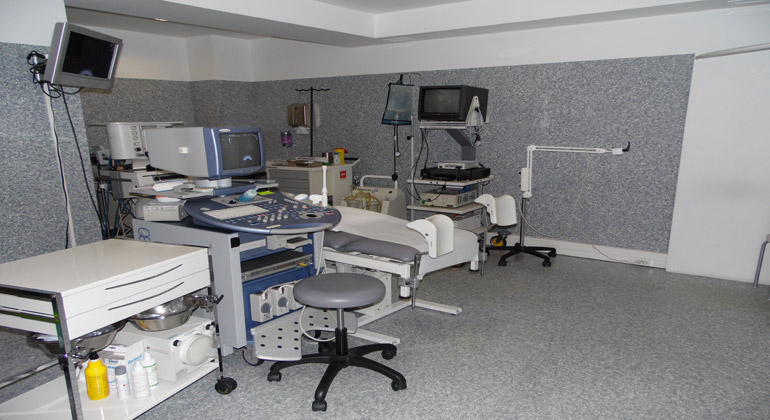
CETI, the Infertility Studies and Treatment Centre, was founded in 1998 in Porto, Portugal.
Their focus is deep infertility studies and all the treatments associated, whether they are medical, surgical or Assisted Reproductive Technology.
CETI was founded by Professor João Silva Carvalho, a specialist in gynecology and obstetrics for over 30 years with experience in Fertility. He was the president of the Portuguese Reproductive Medicine Society and a member of the Advisory Committee of ESHRE (European Society of Human Reproduction and Embryology).
Click here to learn more about CETI and Professor João Silva Carvalho.
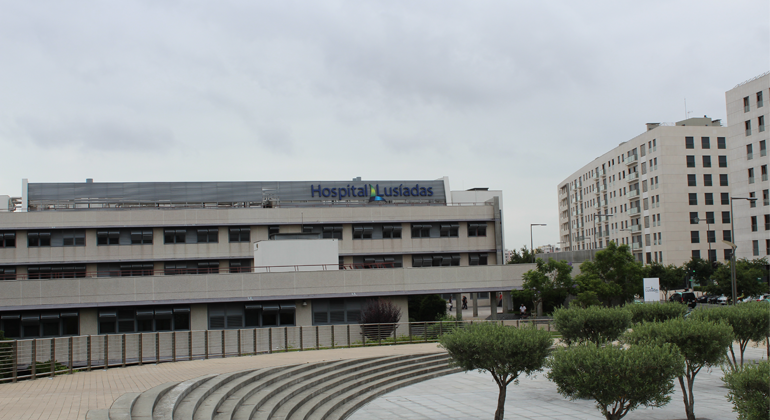
Hospital Lusíadas Lisboa is accredited by Joint Commission International
The hospital has a unit exclusively dedicated to Assisted Reproductive Technology with professionals from several medical fields with proven experience.
When couples arrive at the unit, they get a full diagnosis in order to find out the reason of infertility and together with the team they decide the best course of action, with the ultimate goal being to achieve pregnancy.
Click here to learn more about Hospital Lusíadas Lisboa and the specialists in Assisted Reproductive Technology.
Doctors who perform this medical procedure
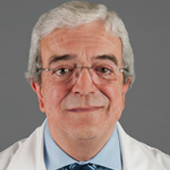
Gynaecology
With a degree in Medicine since 1976 from Faculdade de Medicina do Porto. Specialist in Gynaecology since 1985 and in Obstetrics since 1989. Holds a PhD degree since 1996. Professor at Faculdade de Medicina do Porto and at Universidade Católica do Porto. Advisor of several Master’s thesis and PhD dissertations.
Performed the first Hysteroscopy and Resectoscopy surgeries at Hospital de São João in Porto and collaborated in the creation of the Reproductive Medicine Unit.
In 1998 created the project and founded CETI, where he is still a Manager and Clinical Director.
In 2009, was the president of the Gynaecology and Obstetrics Specialty of the Portuguese Medical Board. Was also the president of the Portuguese Reproductive Medicine Society and the Portuguese Gynaecology Society. Member of several scientific societies and editor of national and international magazines. Member of the Advisory Committee of ESHRE (European Society of Human Reproduction and Embryology).
Author of 74 publications in national and international magazines.
His main areas of interest are: Gynaecology and Obstetrics, Reproductive Medicine, Assisted Reproductive Technology, Gynaecology surgery, Laparoscopy surgery and Hysteroscopy.
Languages spoken: Portuguese, English, French and Spanish.
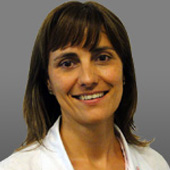
Gynaecology and Obstetrics
Holds a degree in Medicine since 1996. Specialist in Gynaecology and Obstetrics since 2005.
Between 2005 and 2011 she was Guest Lecturer at Faculdade de Medicina do Porto of the Gynaecology/Obstetrics course. She works since 2007 in the Gynaecology/Obstetrics ER Service of Hospital Pedro Hispano and works since 2010 in the Gynaecology/Obstetrics Unit of Hospital CUF Porto.
Member of the Portuguese Society of Gynaecology and the Portuguese Society of Reproductive Medicine. Author of several scientific articles and advisor of many Masters' thesis.
Her main areas of interest are: Gynaecology and Obstetrics, Reproductive Medicine and Ultrasonography.
Languages spoken: Portuguese, English and French.
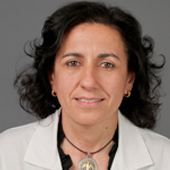
Gynaecology and Obstetrics
Degree in Medicine from Faculdade de Medicina da Universidade do Porto since 1989. Since 2008 is a Specialist in Gynaecology and Obstetrics in the Gynaecology and Obstetrics Unit of Hospital de S. João in Porto.
Member of the Portuguese Society of Gynaecology and the Portuguese Society of Reproductive Medicine. Author of several articles in scientific magazines with a focus on Infertility.
Her main areas of interest are: Gynaecology and Obstetrics, Infertility and Assisted Reproductive Technology
Languages spoken: Portuguese and English.

